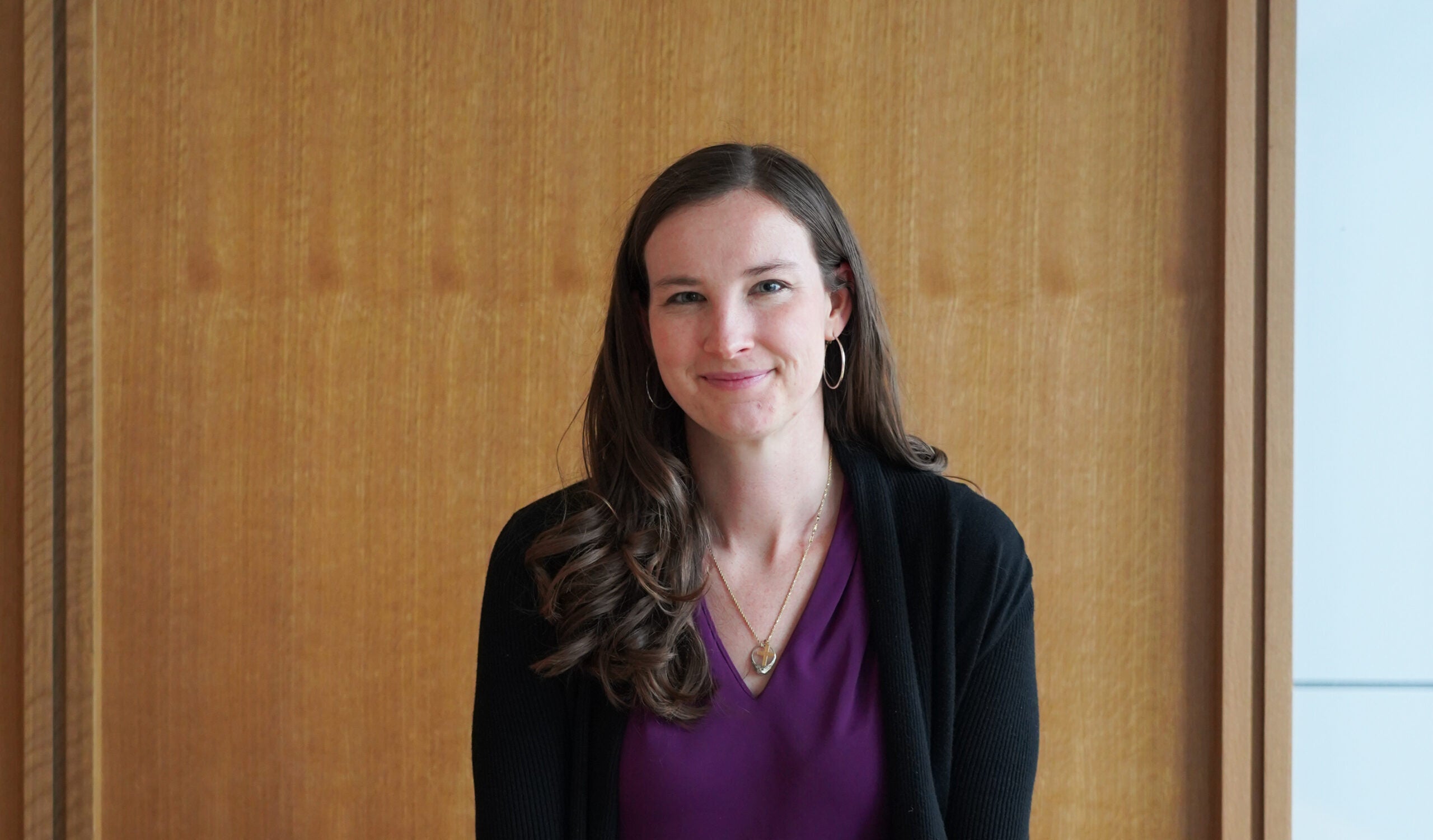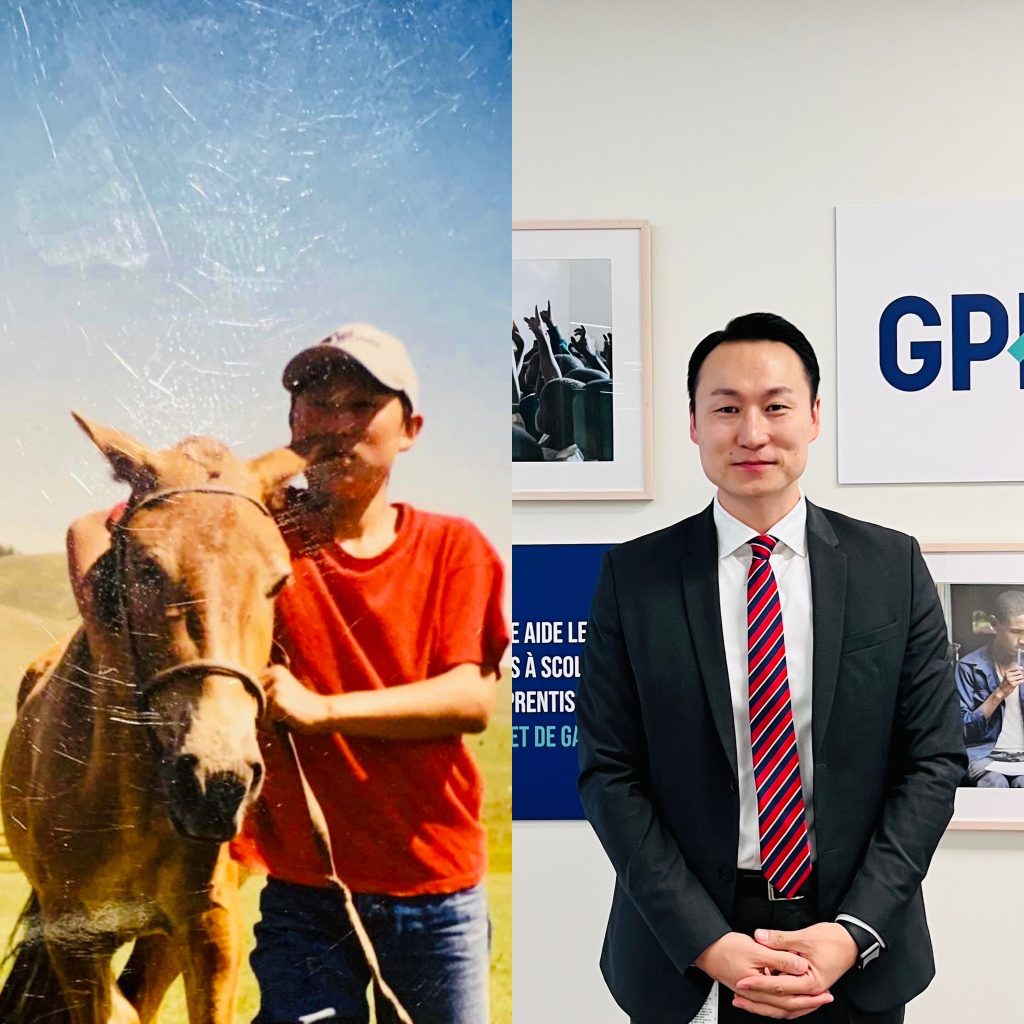Why an aspiring doctor left medicine behind to pursue global health policy
Drawing inspiration from her physician parents’ work with underserved communities, Rosie Poling (MPP-E’27) leverages data-driven policy to help eradicate some of the world’s deadliest diseases.
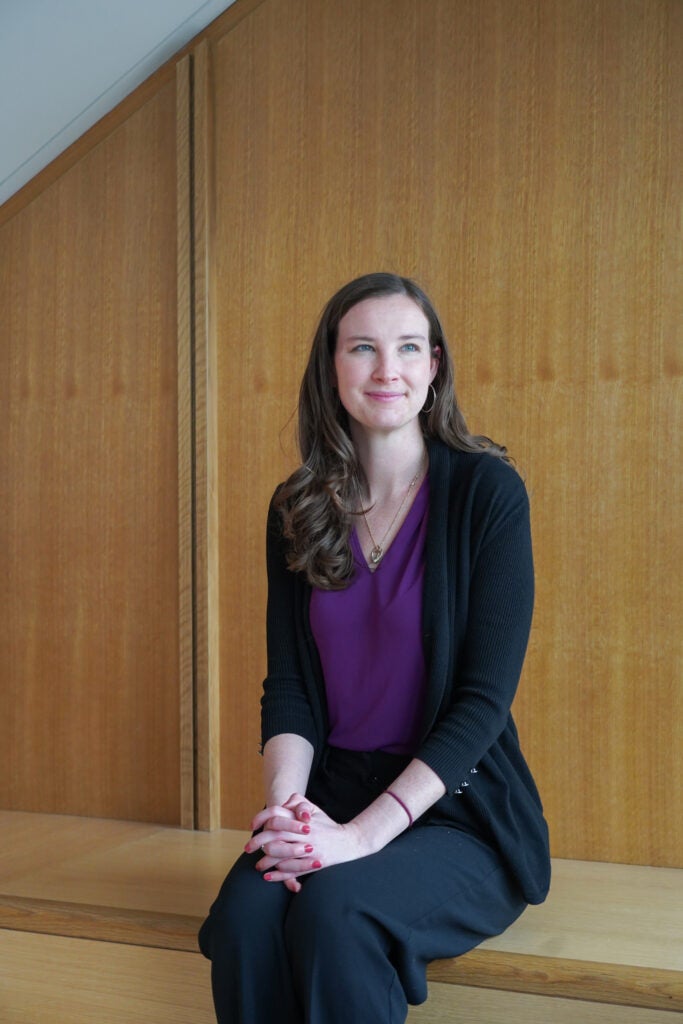
Rosie Poling (MPP-E’27), an evening student in the Master of Public Policy program, works full-time as a policy analyst at Partners in Health.
For Rosie Poling (MPP-E’27), health policy is personal. Growing up in North Carolina and later Marco Island, Florida, she witnessed firsthand the challenges of accessing quality health care. Her parents were part of the National Health Service Corps, a government program that funded their medical education in exchange for service in an underserved area. They worked together at the community health center in Caswell County, North Carolina, where Poling’s mother was the only pediatrician. The Polings’ experience working in rural medicine profoundly influenced their daughter’s understanding of health care inequities.
“I always thought I wanted to be a doctor,” Poling reflected. “I did all the pre-med coursework, but during COVID, I saw how much the government had abandoned my parents and their colleagues. They didn’t have protective masks or testing and lost many patients. It was heartbreaking.”
“The pandemic was my turning point,” she said. “I realized I wanted to make it easier for good people who want to do good work.” That realization led Poling to pivot from medicine to health policy. Now, as a student in the McCourt School of Public Policy’s Master of Public Policy evening program , she balances coursework with full-time employment at Partners in Health (PIH).
“I read a book by PIH’s founder, Paul Farmer, and was blown away by his commitment to actualizing the right to health,” said Poling, who began volunteering at PIH during her freshman year of college. “I love my job and didn’t want to leave it, so I devoted my time to getting better at it.”
Using quantitative methods to train grassroots advocates
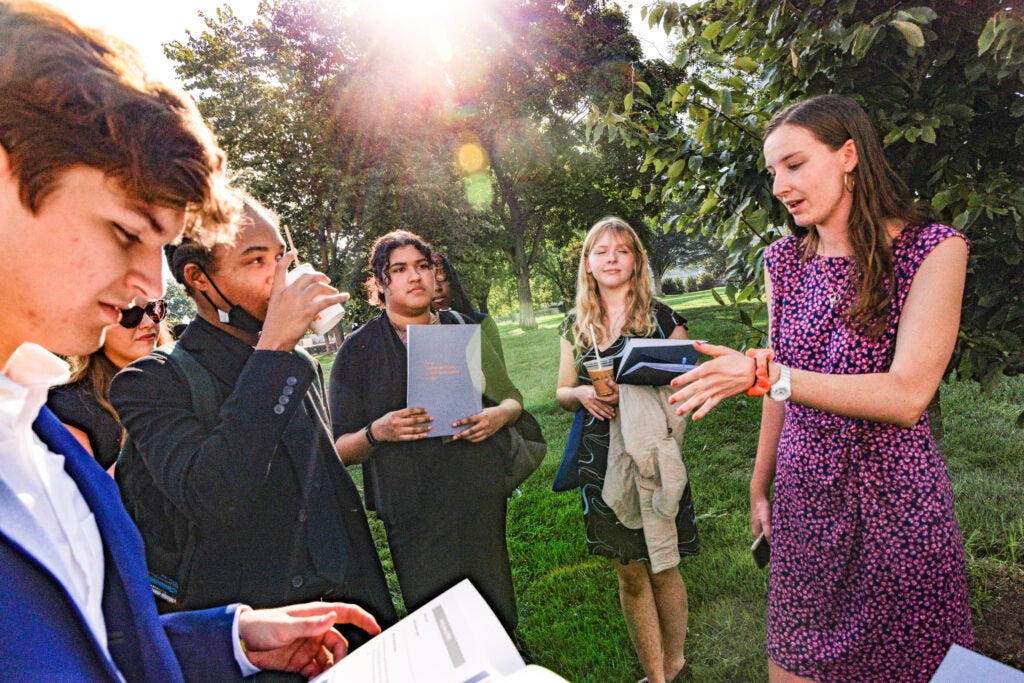
Poling leads a training session for advocates, equipping them with the skills to effectively engage in policy and legislative processes.
The McCourt School’s emphasis on quantitative methods and data-driven policy has given Poling new tools to strengthen her advocacy work. “Part of my job is training grassroots advocates — college students and volunteers who deeply care about global health,” she said. “When meeting with congressional offices, they need to present data in a way that resonates. I always joke that we don’t tell them the p-value, but we do explain what it means.”
Poling also works closely with physicians and medical researchers, helping them translate complex findings into compelling policy arguments. “A lot of medical researchers think publishing in the Lancet is enough,” she said with a smile. “But congressional offices aren’t reading medical journals. My job is to help bridge that gap and ensure that advocates are empowered to communicate critical global health issues in a way that leads to action.”
Balancing work, school and community
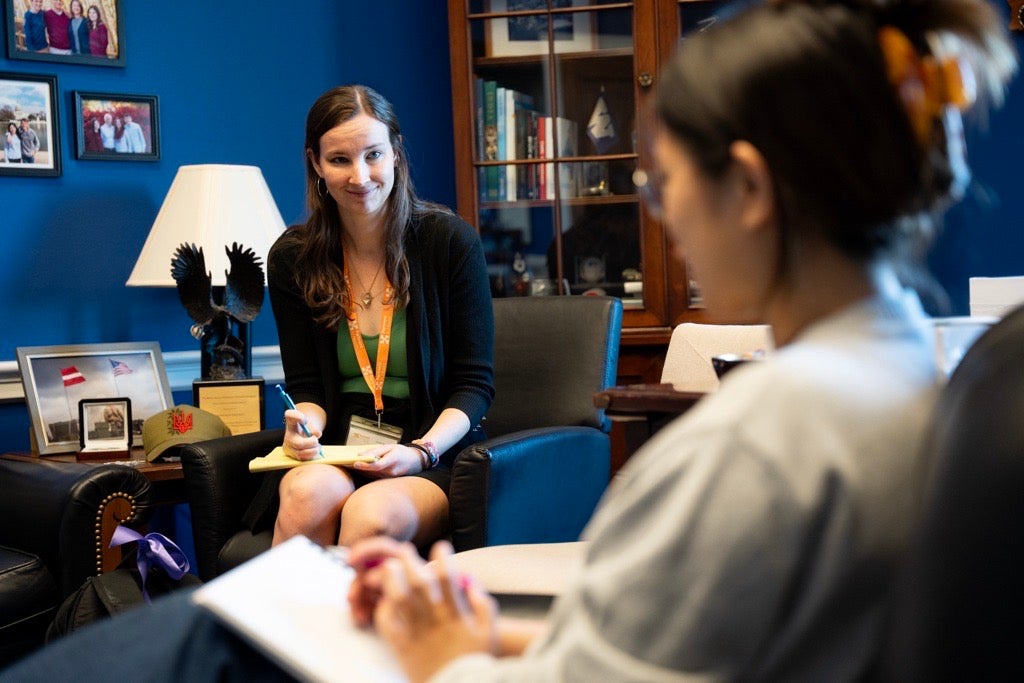
Poling discusses policy solutions in a congressional office, applying her expertise in advocacy to support impactful decision-making.
Managing a demanding job and a rigorous academic program isn’t easy, but Poling credits her coworkers, classmates and professors with making it possible. “I have a really supportive team at PIH, and my classmates in the evening program are incredible. There are only about 15 of us, so we’ve built a tight-knit community,” she said. “We share notes, help each other out and even have a group chat to keep everyone in the loop.”
That sense of community has made her transition to life in Washington, DC, smoother. Poling moved to the city in August 2024, drawn by the McCourt School’s evening program and its strong economic and statistical focus. Her sister, Ellie Poling (CAS ’25), a senior at Georgetown University, also factored into her decision. “Ellie has been involved in the Frederick Douglass Project for Justice , working with incarcerated individuals, and she’s made such an impact. I wanted to be closer to her, and I also wanted to be part of a university that fosters that kind of engagement.”
Applying a student athlete’s ethos to policymaking
After McCourt, Poling envisions continuing her work in global health advocacy, though she’s motivated more by the change she wants to see than by a specific job title. “I care deeply about the health workforce, tuberculosis prevention and ensuring that people have access to the care they need,” she said. “Wherever I can be most effective in advancing those issues, that’s where I want to be.”
Her passion for teamwork and leadership extends beyond advocacy. As an undergraduate at Harvard University, Poling walked onto the rowing team with no prior experience and eventually competed at nationals in her sophomore year. “Rowing taught me so much about intentional culture setting,” she said. “It’s something I think about a lot in the health care advocacy field…how do we create strong team dynamics and set norms that enable success?”
That same ethos drives her work today. “At the end of the day, advocacy isn’t just about data — it’s about people and ensuring the right voices are heard so that policy reflects the realities on the ground.”
With her drive and expertise, Rosie Poling is poised to tackle some of today’s most pressing global health challenges and better connect policy to the people it’s designed to serve.
